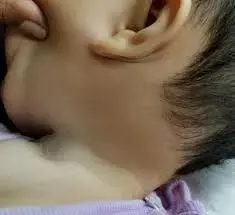- Home
- Medical news & Guidelines
- Anesthesiology
- Cardiology and CTVS
- Critical Care
- Dentistry
- Dermatology
- Diabetes and Endocrinology
- ENT
- Gastroenterology
- Medicine
- Nephrology
- Neurology
- Obstretics-Gynaecology
- Oncology
- Ophthalmology
- Orthopaedics
- Pediatrics-Neonatology
- Psychiatry
- Pulmonology
- Radiology
- Surgery
- Urology
- Laboratory Medicine
- Diet
- Nursing
- Paramedical
- Physiotherapy
- Health news
- Fact Check
- Bone Health Fact Check
- Brain Health Fact Check
- Cancer Related Fact Check
- Child Care Fact Check
- Dental and oral health fact check
- Diabetes and metabolic health fact check
- Diet and Nutrition Fact Check
- Eye and ENT Care Fact Check
- Fitness fact check
- Gut health fact check
- Heart health fact check
- Kidney health fact check
- Medical education fact check
- Men's health fact check
- Respiratory fact check
- Skin and hair care fact check
- Vaccine and Immunization fact check
- Women's health fact check
- AYUSH
- State News
- Andaman and Nicobar Islands
- Andhra Pradesh
- Arunachal Pradesh
- Assam
- Bihar
- Chandigarh
- Chattisgarh
- Dadra and Nagar Haveli
- Daman and Diu
- Delhi
- Goa
- Gujarat
- Haryana
- Himachal Pradesh
- Jammu & Kashmir
- Jharkhand
- Karnataka
- Kerala
- Ladakh
- Lakshadweep
- Madhya Pradesh
- Maharashtra
- Manipur
- Meghalaya
- Mizoram
- Nagaland
- Odisha
- Puducherry
- Punjab
- Rajasthan
- Sikkim
- Tamil Nadu
- Telangana
- Tripura
- Uttar Pradesh
- Uttrakhand
- West Bengal
- Medical Education
- Industry
Corticosteroids useful for treating both retropharyngeal and parapharyngeal abscess in kids: Study

Corticosteroids are useful for treating both retropharyngeal abscesses (RPAs) and parapharyngeal abscesses (PPAs), according to a study published in the American Academy of Pediatrics.
Treatment of retropharyngeal abscesses (RPAs) and parapharyngeal abscesses (PPAs) includes antibiotics, with possible surgical drainage. Although corticosteroids may decrease inflammation, their role in the management of retropharyngeal abscesses (RPAs) and parapharyngeal abscesses (PPAs) is unclear. The researchers evaluated the association of corticosteroid administration as part of initial medical management on drainage rates and length of stay for children admitted with retropharyngeal abscesses (RPAs) and parapharyngeal abscesses (PPAs)
The researchers conducted a retrospective study using administrative data of children aged 2 months to 8 years discharged with retropharyngeal abscesses (RPAs) and parapharyngeal abscesses (PPAs) from 2016 to 2019. Exposure was defined as systemic corticosteroids administered as part of initial management. Primary outcome was surgical drainage. Bivariate comparisons were made between patients in the corticosteroid and non-corticosteroid groups by using Wilcoxon rank or χ2 tests. Outcomes were modelled by using generalized linear mixed-effects models.
The results of the study are as follows:
- Of the 2259 patients with retropharyngeal abscesses (RPAs) and parapharyngeal abscesses (PPAs), 1677 (74.2%) were in the non-corticosteroid group and 582 (25.8%) were in the corticosteroid group.
- There were no significant differences in age, sex, or insurance status.
- There was a lower rate of drainage in the corticosteroid cohort (odds ratio: 0.28; confidence interval: 0.22–0.36).
- Patients in this group were more likely to have repeat computed tomography imaging performed, had lower hospital costs, and were less likely to have opioid medications administered.
- The corticosteroid cohort had a higher 7-day emergency department revisit rate, but there was no difference in length of stay (rate ratio 0.97; confidence interval: 0.92–1.02).
Thus, the researchers concluded that corticosteroids were associated with lower odds of surgical drainage among children with retropharyngeal abscesses (RPAs) and parapharyngeal abscesses (PPAs).
Reference:
Corticosteroids in the Treatment of Pediatric Retropharyngeal and Parapharyngeal Abscesses by Pratichi K. Goenka et al. published in the American Academy of Pediatrics.
Dr. Shravani Dali has completed her BDS from Pravara institute of medical sciences, loni. Following which she extensively worked in the healthcare sector for 2+ years. She has been actively involved in writing blogs in field of health and wellness. Currently she is pursuing her Masters of public health-health administration from Tata institute of social sciences. She can be contacted at editorial@medicaldialogues.in.
Dr Kamal Kant Kohli-MBBS, DTCD- a chest specialist with more than 30 years of practice and a flair for writing clinical articles, Dr Kamal Kant Kohli joined Medical Dialogues as a Chief Editor of Medical News. Besides writing articles, as an editor, he proofreads and verifies all the medical content published on Medical Dialogues including those coming from journals, studies,medical conferences,guidelines etc. Email: drkohli@medicaldialogues.in. Contact no. 011-43720751


